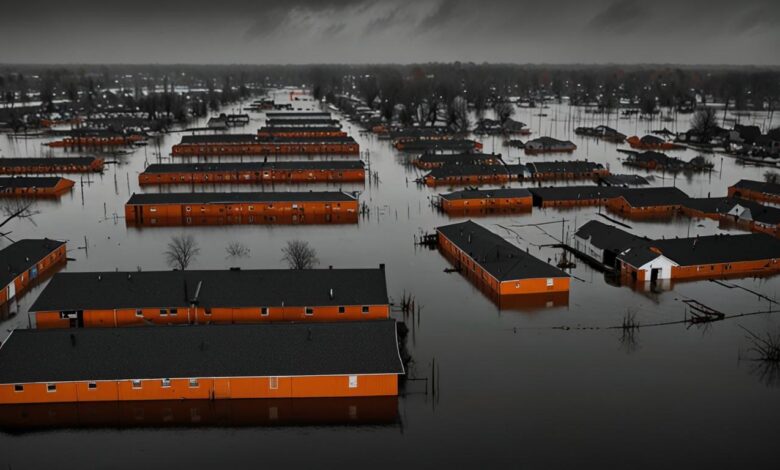Deadly Floods and Heat Waves Grip Midwest and Beyond as Climate Crisis Unfolds

Severe floods and scorching heat hit the Midwest, claiming lives and displacing thousands, as experts warn of heightened climate risks.
Deadly Floods and Heat Waves Ravage the Midwest and Beyond
Severe weather conditions have wreaked havoc across the Midwest and other parts of the United States as multiple states contend with both deadly floods and intense heat waves.
Flooding in the Midwest
Over the weekend, heavy rainfall triggered catastrophic flooding in South Dakota, Iowa, and Minnesota. South Dakota Governor Kristi Noem reported one fatality but did not disclose further details due to privacy concerns. Minnesota Governor Tim Walz noted that entire communities are submerged under several feet of water.
Governor Kim Reynolds of Iowa declared a state of emergency in 21 counties. Businesses, healthcare facilities, and homes have been destroyed, and about 4,000 residents of Rock Valley, Iowa, were evacuated due to rising floodwaters. Water rescues were performed throughout the day by local authorities.
Drone footage from Woodbury County, Iowa, showed submerged buildings and roads, with infrastructure such as a train bridge in Sioux City collapsing into the swollen Big Sioux River.
Heat Wave Alerts
Alongside the flooding, a severe heat wave has placed over 100 million Americans under heat warnings. Temperatures have soared into the triple digits, with significant impacts observed across the East Coast, Midwest, and South. Baltimore and Philadelphia experienced record-breaking temperatures near 100°F, while states such as Idaho, Montana, and Wyoming faced temperatures up to 15 degrees above normal.
The heat wave has tragically led to the deaths of two children left in hot cars and two heat-related fatalities in Idaho. Record-high temperatures also spread across various states including Virginia, Massachusetts, Connecticut, and New Jersey.
Climate Impacts
Experts attribute these extreme weather patterns to climate change, predicting 2024 to be the hottest year on record following 2023. As the climate crisis continues to drive severe weather events globally, the U.S. and other countries face an increasing frequency of such disasters.
Ongoing Efforts
Utility crews and emergency teams are working tirelessly to manage these extreme conditions, with some areas receiving federal and state assistance. In response to multiple weather-related incidents, the Biden administration declared an emergency over wildfires in New Mexico, emphasizing the widespread critical impact of current climatic conditions.








